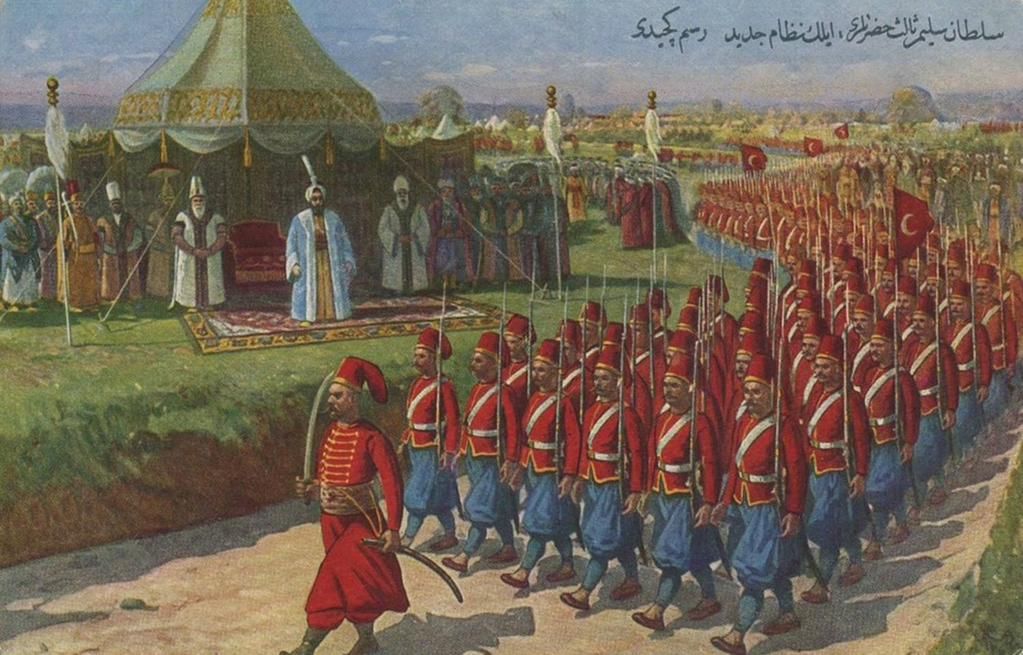

Under great threat by Russians, British and Frenchmen, they ultimately strengthened ties with the German Empire, like Abdulhamid II had done it before. In 1913, with the Raid on the Sublime Porte, the game was over: The centralist CUP, with significant public figures such as the Three Pashas ( Enver, Djemal and Talaat), would eradicate all remaining power of the decentralists and shape the nation in their image.

Through a tumultuous 5 years, these two sides would battle for control as the ideals of democracy and freedom of thought they once held so dearly were slowly moved to the sidelines. The united democratic forces would, however, not endure - and quickly split between the decentralists and the centralists. Dozens upon dozens of parties would attempt to find a seat within the newly restored parliament as it seemed that Ottoman decline was finally at its end. A coup d'état in 1908 made Ottoman politics, long suppressed by the Sultan, burst into the open. This resistance would consolidate itself in the shape of the “ CUP”, or “ Committee of Union and Progress”. Furthermore, Abdulhamid's absolute rule fostered great discontent amongst a population which became increasingly familiar with Western ideas. Despite enjoying great popularity among the Sunni Muslim population, it would alienate the religious minorities, which the Empire had plenty of. With a constant threat by Christian powers, the Sultan turned towards Pan-Islamism based on the prestige of the Caliphate. This period, later to be known as the Hamidian Era, saw a radical centralisation of power under the figure of the Sultan-Caliph. Under the pretext of the Russo-Turkish War, the constitution was abolished and the parliament shut down. The caption says: The Triple Entente and the German military mission The Russian: "Watch out, kids, in the end, he will even cure the Turk!" German caricature about the German military mission in Constantinople, early 1914. With Abdulhamid II‘s rise to power in 1876, drastic changes would come once again. The focus of these reformers was based on the idea of Ottomanism, and attempted to foster a common identity for all its inhabitants besides their local one. Land ownership was restructured, the Janissaries eradicated, central rule reestablished in regions such as Mosul and Al-Hasa, and a constitution promulgated. Prompted by Mahmud II in the early 19th century and further pursued by the Young Ottomans, radical changes were introduced in the Empire. Nonetheless, the Ottomans reformed, and despite the issues these posed on a local level - where tribal issues and a corrupt bureaucracy reigned supreme - light could be seen. An inability to effectively industrialize, constant foreign meddling in its affairs, and a troubling hold on a lot of its provinces meant that the Ottoman Sultanate had fallen back well behind the European powers by 1876. The 19th century brought great decline to the once prosperous Middle East.

but at what cost? (1920-1925)īritish caricature: Abdülhamid II celebrates the Turkish victory in the Greco-Turkish War of 1897, the first Ottoman victory in an external conflict for decades, by asking "Who says Sick Man now?" Under the grand vizier Mustafa Kemal Pasha, whose Ottoman People's Party has governed the country for the majority of the time since 1926, far-reaching reforms to centralize, modernize, and secularize the state have been pursued. With a German victory on the Western Front, the Ottomans were largely able to restore their lost territory however, the effects of the war greatly destabilized and bankrupted the state and left it internationally isolated. The Ottoman armies performed poorly with British forces occupying large swathes of the Levant and Mesopotamia, but the Ottomans were able to prevent any advance into Anatolia before the end of the war. Under the Three Pashas, the Ottomans aligned with Germany and the Central Powers during the Weltkrieg. After mostly unsuccessful attempts at reform, the Young Turk Revolution of 1908 brought a new generation of radical modernists to power. With a history stretching back to the Middle Ages, the Ottoman Empire went into decline during the 19th century and saw much of its territory lost. It borders Bulgaria in Europe Georgia, Azerbaijan, and Persia in the east Jabal Shammar, Nejd and Hasa, Yemen, and Oman in the Arabian Peninsula and Egypt, Cyrenaica, and the French Republic in Africa. The Sublime Ottoman State) is a large country in the Middle East. The Ottoman Empire (Turkish: Devlet-i ʿAlīye-i ʿOsmānīye, lit.


 0 kommentar(er)
0 kommentar(er)
